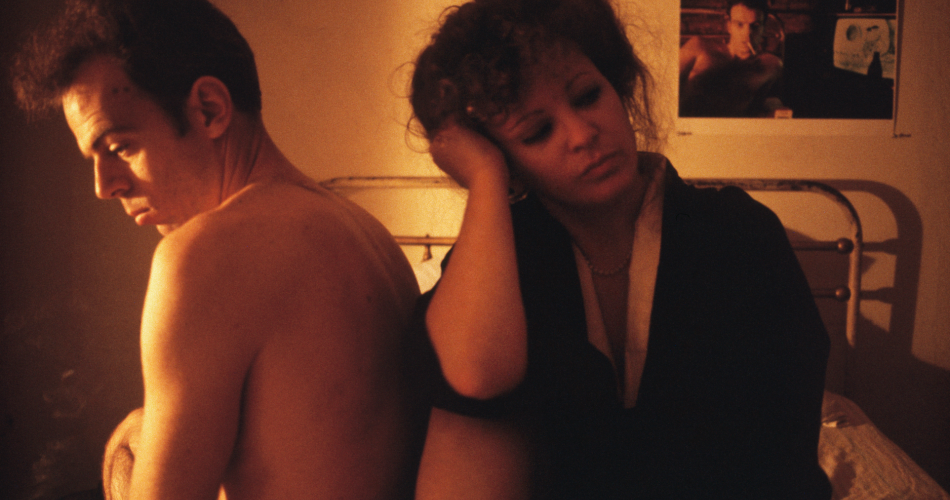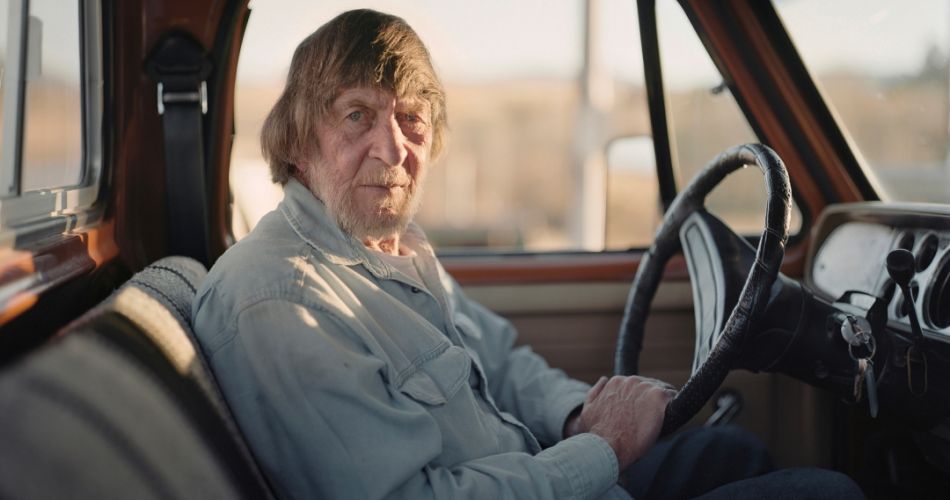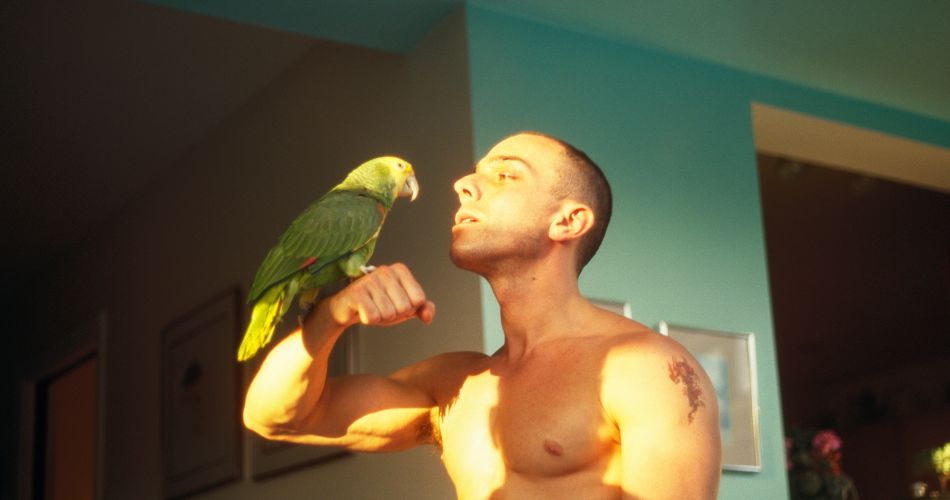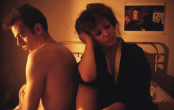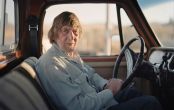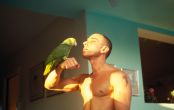REVIEW: Jürgen Klauke: Aesthetic Paranoia @ Annely Juda Fine Art
‘Aesthetic Paranoia’, is a series of nineteen photographs by German artist Jürgen Klauke presented at Annely Juda Fine Art. The large black and white prints of the eponymous series are somewhat of a trademark of the artist, since the 1980’s. Refined and minimalistic, the image sequences depict staged scenarios of an anonymous man in a suit, on a white bed. A mass of long black hair engulfs the subject as an allegorical entity threatening identity, while also ironically remaining inseparable from it.
Klauke is considered an initiator of performance art. Here, as often done before, the artist uses photography to document an act for the spectator to attend, entering the domain of the inexpressible, one image at a time. Such works explore the notion of system, both in creative approach and psychoanalytic content: it considers the representation of mental process, each sequence providing the spectator with a ‘possibility’ of interpretation, a possible reaction to a confined situation. Referred to as ‘body art’ in photography, the images reveal the conflicts of the self within a disturbing, but quiet setting. Placing his own body at the centre of his work, Jürgen Klauke explores behavioural patterns and psychological states in a figurative manner, questioning socialised gender norms as well as mental and physical identities.
The neutrality of décor, often made of quotidian objects such as chairs, tables or a bed, as well as the single character, construct a surrealistic space and, at times, unsettling tableau of solitary dialogue, as the world echoes on an isolated figure. The series recalls the works of artists Pierre Molinier or Hans Bellmer, and philosopher Georges Bataille, relocating body identity to material in a study of the absurdity of life..
More an indication than a definition, the title ‘Aesthetic Paranoia’ offers a particular approach to the series. Projecting the identities of dramatized subjects onto his own body, Klauke investigates the depth of paranoid existence and human perception as the entangled self battles through a frame of boredom – obscured by a wall of hair, or sensually trapped in a net of black locks. In a narration reminiscent of séance, the anonymous persona might appear to be lost or submissive, fighting, or ultimately acceptant and transformed while challenging gender associations and human mutation as the hair becomes a psychological veil – a feminine mane or a hostile mass.
Returning to the notion of aesthetics, the title of the work evokes a sensory judgement. The etymology of ‘aesthetics’ relates to the study of perception, while perception itself relates to paranoia as a form of excessive interpretation.
Indeed, the paranoid self is the one that is devoured by a clouded vision of reality. The work demonstrates an obvious use of both notions. The ‘Loose Connection’ series doesn’t imply any explicit relationship to the portrait work. Although, looking closer, the hair and animated power cables in this series might suggest the presence of a similar ghostly force. The countless plugs and a negative version of the print could be seen as the inner mind and its multiple possibilities of associated connections..
In a relentless duel, the man seems to embody both the possessed soul and the creator of its demon inspiring its reality himself. Together, the works invite the viewer to consider the real instigator of the scenes, the one actor believing in his own myth, the paranoid self-embracing the surreal presence.
What is so striking about Jürgen Klauke’s work is its clinical beauty. While nothing in the image should be specifically referred to as a beautiful object or person, the whole vision firstly moves us by its singular coherence. The artist seems to photograph with what could be considered a dictatorial composition. Under a perfect angle, the image unfolds in a most orderly way, as even the black hair unrealistically follows the contour of the bed.
The beauty of it all may reside in our conflicting selves, and here such confrontation is subtly portrayed in its bare situation, empty from each previous viewer’s personal projection.
Celine Bodin
 Céline Bodin is a French photographer. After studying literature and architecture, she graduated from a photography BA at Gobelins, L’école de l’image in Paris. In 2013 she completed a Photography MA at the London College of Communication. As well as regularly writing about photography, her personal practice explores themes of identity, gender, and the metaphysical frustration of the medium in representation.
Céline Bodin is a French photographer. After studying literature and architecture, she graduated from a photography BA at Gobelins, L’école de l’image in Paris. In 2013 she completed a Photography MA at the London College of Communication. As well as regularly writing about photography, her personal practice explores themes of identity, gender, and the metaphysical frustration of the medium in representation.

